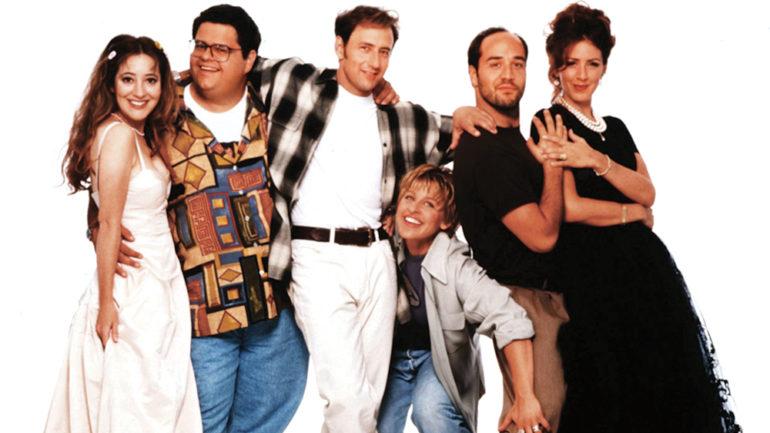GLAAD Chief: Hollywood Needs to Continue Playing a Role in LGBTQ Progress
By Sarah Kate Ellis
LOS ANGELES (Variety.com) – This Pride Month is not only about celebrating— it’s also about reflecting how far LGBTQ acceptance has come since the Stonewall riots catalyzed the LGBTQ movement 50 years ago, and about honoring the trailblazers and leaders who propelled LGBTQ visibility and issues forward in what many social justice experts describe as relatively lightning speed.
Hollywood played an undeniable and pivotal role in accelerating acceptance. Film historian Vito Russo recognized this and founded in 1985 to seize on the opportunity and to fight back against inaccurate and negative LGBTQ stories. A year later, pioneers including Jehan Agrama brought GLAAD to Los Angeles to leverage Hollywood in growing visibility of LGBTQ people. These visionaries saw the power of media and knew that if LGBTQ people could harness it and tell their stories, the community would advance.
In the 1980s, TV series such as “The Women of Brewster Place,” “Soap” and “L.A. Law” opened Americans’ eyes to gay and lesbian people at a time when the news media was demonizing so-called homosexuals. Films like “Philadelphia” humanized HIV/AIDS. The emotional strife of coming out was told through “Ellen,” “My So-Called Life,” “Dawson’s Creek” and “Brokeback Mountain.” The same-sex couples on “Friends,” “Six Feet Under” and “The Kids Are All Right” demonstrated how loving and committed same-sex couples can be. Hollywood has now started to humanize transgender people through “,” “Supergirl,” “Transparent,” “” and the groundbreaking “Pose.”
If you look at a timeline of LGBTQ victories since Stonewall, Hollywood has been there each step of the way to tell the stories that built the public support for legal equality. Vice President Joe Biden famously said it best before coming out for marriage equality: “I think ‘Will & Grace’ probably did more to educate the American public than almost anything anybody has ever done so far.”
Marriage equality was a leap forward for some in the community. It also has come to be seen by many non-LGBTQ people as full acceptance and has diminished the urgency of the increasing discrimination and hate experienced daily by so many in the community. Marriage equality is not protection of a job, housing and benefits. And our fight for equality is complex and misunderstood. GLAAD research reflects that more than 50% of non-LGBTQ people think that the protections we seek are “special rights.”
The fight isn’t over, and Hollywood cannot rest on its laurels. LGBTQ Americans are facing uphill battles in the Supreme Court and rising levels of hate violence, but if you see LGBTQ stories today on TV, film or a streaming platform, you would not know it. Many of the 20 GLAAD Media Award-nominated television series this year told stories of romance and family but left out the discrimination that their LGBTQ characters might experience if they were living in the real world.
LGBTQ people can still be legally fired in more than half the states, minors can be put through dangerous anti-LGBTQ conversion therapy in 33 states and the FBI has reported a 17% rise in anti-LGBTQ hate crimes. The Equality Act — which would protect LGBTQ Americans from discrimination at work, in housing and in public accommodations — passed the House of Representatives but has stalled in the Senate. HIV rates continue to rise among communities of color in the South, and at least five transgender women of color have lost their lives to hate violence this year.
Not all LGBTQ people live with discrimination, but Hollywood’s often rosy portrait of LBGTQ families is helping to fuel the idea that discrimination against LGBTQ people and families is a thing of the past. Our research shows that Americans are largely unaware that no federal law protects LGBTQ people from discrimination and that anti-LGBTQ discrimination impacts hardworking people each and every day. As a result, many see attempts to secure protections like the Equality Act as special rights.
This Pride Month, as we celebrate 50 years of progress for LGBTQ people and the role that Hollywood has played in increasing acceptance and understanding, we need to remember that the work is far from over. Hollywood can change the tide on discrimination by using its tested formula of stepping up and telling stories of LGBTQ people who overcome rejection and discrimination. Visibility worked in the LGBTQ community’s favor, and now showing our community’s vulnerability can bring us closer to the finish line.
Sarah Kate Ellis is the president and CEO of GLAAD.

